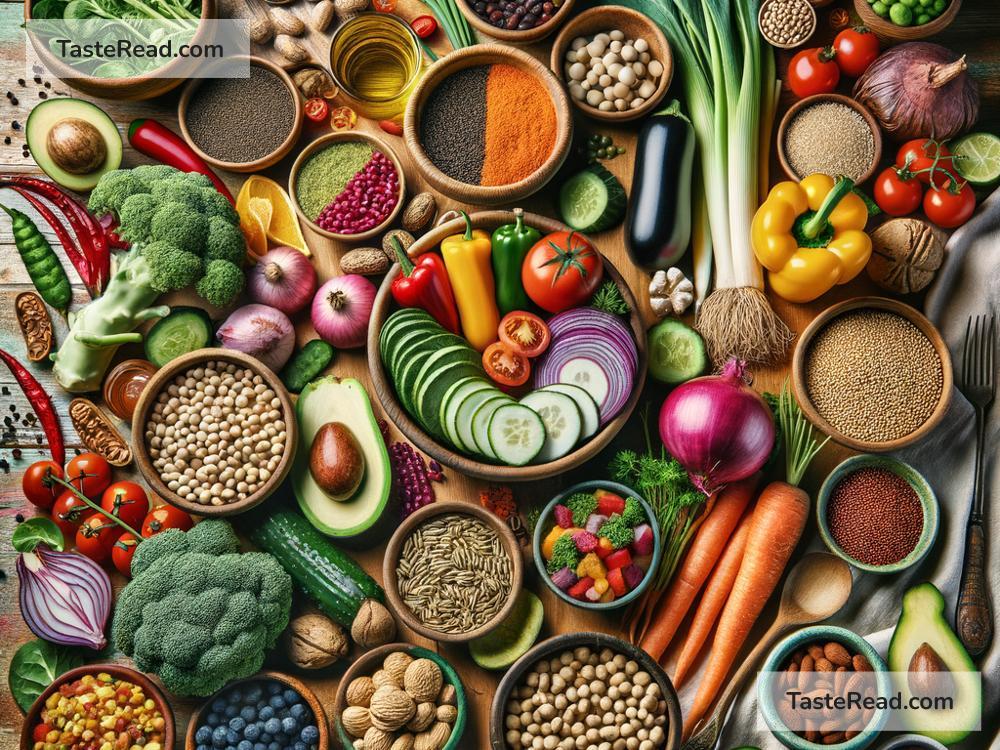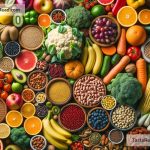The Kind Diet: How Veganism Can Help Lower Cancer Risk
Guess what? Your kitchen might hold a powerful key to fighting one of the most daunting health battles many of us might face in our lives: cancer. With millions of people worldwide grappling with this disease, any slice of hope is a banquet of its own. And that hope might just be nestled in the leafy greens and colorful fruits of a vegan diet.
What’s the big deal about veganism?
Veganism is more than just a trend; it’s a lifestyle choice that excludes all animal products. Yep, that means saying no to meat, dairy, and anything else that comes from animals. The big question is, can this plant-based way of eating actually help fend off cancer?
The Green Warriors: Fruits and Vegetables
Plants are nature’s little health warriors, packed with vitamins, minerals, and antioxidants. These nutrients are like the special forces of your body, protecting your cells from damage, including the kind that can lead to cancer. Think of fruits and vegetables as your bodyguards, shielding you from the bad guys.
Fiber: The Unsung Hero
One superhero nutrient found abundantly in plant-based foods but missing in animal products is fiber. Fiber is like the cleanup crew of your digestive system, helping to keep things moving and reducing the risk of colon cancer. It also helps you feel full, which can prevent overeating and help maintain a healthy weight, further reducing cancer risk.
Plant Power: Reducing Cancer Risk
Research shows that people who follow a vegan diet have a lower risk of developing cancer compared to non-vegans. This might be because vegan diets are rich in those plant-based nutrients that help protect our cells. Also, by avoiding animal products, vegans might be dodging certain cancer-related bullets, such as hormones and saturated fats found in meat and dairy.
Breast and Prostate Cancer
Studies suggest that a vegan diet can be particularly powerful in reducing the risk of breast and prostate cancers. These types of cancer are often hormone-related, and guess what? Plant-based diets can help regulate hormones, thanks to their low levels of animal fats and high amounts of fiber.
Less Red and Processed Meat, Less Risk
Much research, including the findings from the International Agency for Research on Cancer (IARC), part of the World Health Organization (WHO), has linked the consumption of red and processed meats to an increased risk of cancer, particularly colorectal cancer. By choosing kale over kebabs and beans over bacon, vegans might be stepping away from these risks.
Lifestyle Matters
It’s not just about what vegans eat, but also what they might not indulge in as much. On average, vegans tend to smoke less, drink less alcohol, and exercise more – all factors that contribute to a lower cancer risk. Plus, maintaining a healthy weight is easier with a diet full of plants, which again, helps in cancer prevention.
It’s Not Just Black and White
While veganism has its perks, it’s important to note that simply being vegan doesn’t make you immune to cancer or other diseases. Other factors like genetics, environment, and lifestyle choices play big roles too. And not all vegan diets are created equal – a diet of solely vegan junk food isn’t doing your body any favors.
To make the most out of a vegan diet for cancer prevention, focus on whole, unprocessed foods. Fill your plate with a rainbow of fruits and vegetables, whole grains, nuts, and seeds. And, as always, moderation is key.
Embracing the Vegan Way
If you’re thinking of going green with your diet, why not give it a try? Start small by incorporating more plant-based meals into your week. Whether it’s Meatless Mondays or swapping dairy milk for almond milk, every little bit helps. Who knows? Your tastebuds and your health might thank you in the long run.
Final Thoughts
The link between veganism and a reduced risk of cancer is compelling. With benefits ranging from nutrient-packed foods to avoiding certain carcinogens found in meat, it’s no wonder more people are choosing plants over poultry. While veganism isn’t a cure-all, it’s a proactive step you can take towards a healthier life – and perhaps a longer one at that.
Remember, the best diet is the one that works for you and makes you feel good, inside and out. And as always, make sure to consult with a healthcare professional before making significant changes to your diet. Here’s to your health – may it be as vibrant and flourishing as a well-tended garden.


